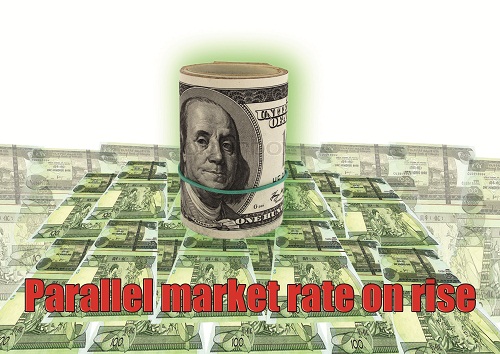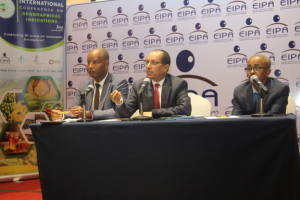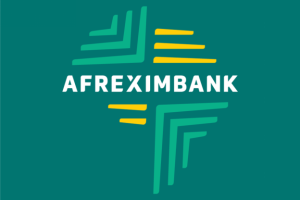
The recent thriving of parallel market for foreign exchange in the country has something to do with the weak export performance and import substitution activities as well as lack of consistence implementation of legal measures against the informal channel, so remarked economic experts.
Having taken several measures ranging from birr devaluation to the closure of businesses engaged in an informal exchange market and announcement of exchange rate adjustment to exterminate parallel market, the government could not sustain the success in this end, the experts note.
In July 2018, a rumor was spread suggesting the government would reevaluate dollars soon, and then briefcases full of dollars had been pouring into banks and local businesses relieving the foreign exchange crunch. In the black market, dollar, pound and euro were exchanged for historic low. However, the situation was short-lived and now the gap between the parallel and official market rates for dollar is almost reaching up to eight Birr .
For Assistant Professor of Economics and Monetary Policy Specialist at Dilla University, Dr. Dawit Ayesew , the revival of parallel market in Ethiopia is largely attributed to an overvalued exchange rate of birr. Until the end of 2017, the real effective exchange rate of birr was estimated to be overvalued by 20 percent against dollar, even after the devaluation in October of the same year.
The Assistant Professor further points out that Ethiopia’s large and complex informal sector has also caused the revival of black market as the sector is less likely to access forex from banks and other legal sources. The size and volume of the informal sector is so enormous that it has been significantly affecting the exchange rate in black market.
According to the expert, the huge prevalence of black money – income illegally obtained or not declared for tax purposes – in Ethiopia’s economy is also a factor that contributes for the upsurge of exchange rate in that black money tend to be converted to hard currencies to withhold assets. Sharing the above, Business Lecturer at Addis Ababa University Mukemil Bedru says that Ethiopia’s unsatisfactory foreign trade is largely contributing for the revival of black market despite the fact that the country has witnessed huge inflow of aid and soft loan in recent times.
Ethiopia exports considerably less in comparison to the bulk of imports; and the imports surpass exports by five folds. The expert notes that most people tend to choose the black market over the legal ones because the former pays better.The reason for black market existence is not as it obvious as it seems, Mukemil says, adding that parallel market is common in countries like Ethiopia, which follows managed floating exchange rate system, where excess demand of foreign currency is subject to legal restriction or to official price ceilings.
Noting lackof effective economic policies to control black market premiums and exchange rate restrictions in Ethiopia discourage individuals and businesses from using the formal channel, he indicates that stricter and tougher regulation to access foreign currency would encourage people to be the part of the parallel market when the shortage exists.
Against such backdrop, however, the country has enjoyed aremarkable economic growth over the past decade and plus years, chiefly because of a bulge in foreign transfers and capital inflows combined with increase in private and public investments in infrastructure. To Economics Associate Professor at Federal Meles Zenawi Academy, Dr. Wondaferahu Mulugeta, the government of Ethiopia has taken remarkable steps to overcome forex crunch and attract anchor companies from all corners of the world through diplomatic channels.
Dr. Wondaferahu says that Prime Minister Dr. Abiy Ahmed’s meticulous leadership to encourage FDI has been proven successful in attracting Gulf countries to take part in Ethiopia’s investment opportunities as well as offering a sizeable amount of dollars. In this regard, the decision UAE made to deposit three billion USD in Ethiopia’s central bank is believed to play an instrumental role in boosting the country’s forex reserve.
The involvement of international companies in Ethiopia’s extensive investment opportunities could bring in significant amount of hard currency to the country’s economy, the expert says, adding that Premier Abiy has been particularly successful in reaching agreements with Saudi Arabian and Chinese governments to extend the loan payment periods that would essential in maintaining the existing forex reserve.
He says that the decree that allows both domestic and foreign firms to buy minority shares in big public-owned companies and fully privatize other public enterprises would have paramount importance in attracting enormous foreign currency. The growing confidence among the Ethiopian Diaspora that followed PM Abiy’s tours in the US and Europe would also encourage them to deposit more hard currency in the country.
Highlighting the short-term effect of administrative measures and crackdowns in the survival of parallel market, Dr. Dawit say that all actors in the export industry should make consolidated efforts to enhance the sector’s unsatisfactory performance in the view to boost forex reserve in the formal sector thereby easing the access to hard currency. Due attention should also be given to improve Ethiopia’s capacity to substitute the bulging imports of consumer goods that have drained precious forex reserve to allocate the hard currency to strategic imports.
Dr. Wondaferahu for his part believes that changing the currency notes is the easiest way to weaken the parallel market in that the measure enables the government to regulate the money circulation and curb the tendency of converting black money into hard currency.
The experts highlight that the government needs to legalize the parallel foreign exchange market and incentivize private sector’s participation in forex bureauas the black market could contribute to the flow of 30 percent of funds to the official channel. The effective implementation of various macroeconomic policy measures will also enable the country to curtail the survival of parallel market and create a unified forex market, they remark.
The Ethiopian Herald, December 25/2018
BY BILAL DERSO





